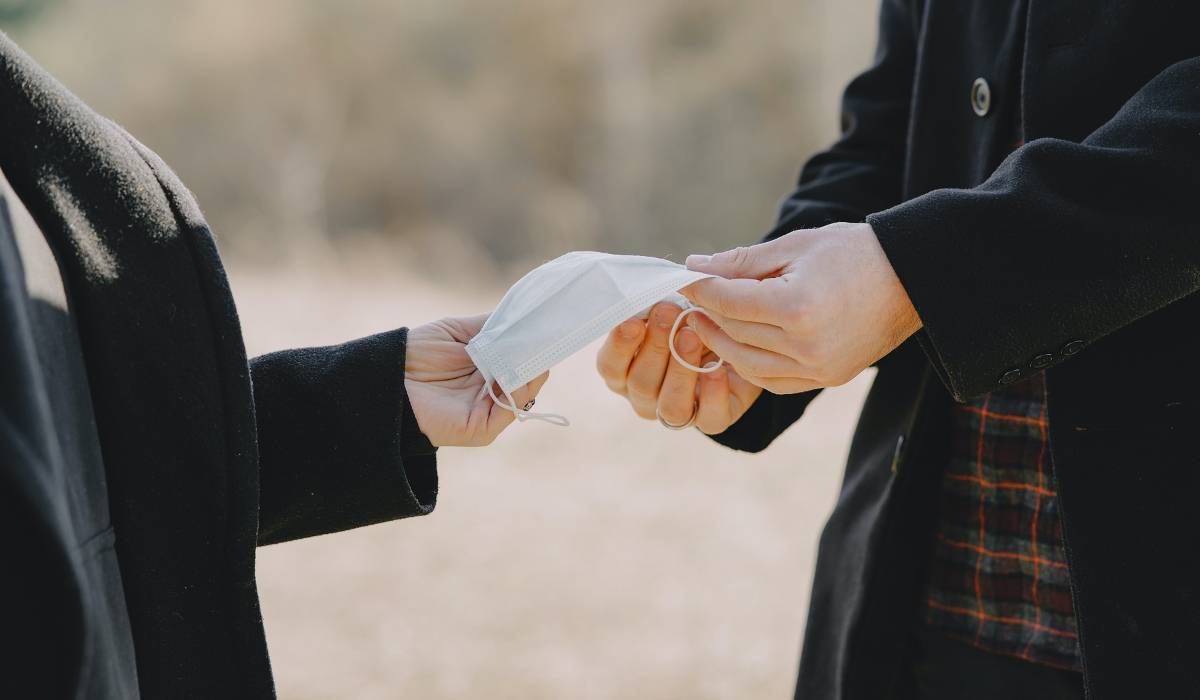Jayme Blaschke | November 28, 2022

When the COVID-19 pandemic prompted stay-at-home and social distancing policies throughout 2020 and 2021, many predicted a “pandemic baby boom” would soon result. Why that anticipated spike in the birthrate never materialized may be due in part to the pandemic itself.
While COVID-19 was wreaking havoc on mental and physical health, economies and employment globally, it was also quietly infiltrating the bedroom as well.
An international research team led by Texas State University’s Rhonda Balzarini, an assistant professor in the Department of Psychology and an affiliate faculty member with the Kinsey Institute at Indiana University, has shown that COVID-related stress factors have had a major negative impact on sexual desire around the world. The report, "Sexual Desire in the Time of COVID-19: How COVID-Related Stressors Are Associated with Sexual Desire in Romantic Relationships," is published in the journal Archives of Sexual Behavior (https://doi.org/10.1007/s10508-022-02365-w).
In two separate studies, the researchers tracked personal and societal changes imposed by the pandemic that are risk factors for depressive symptoms and are associated with lower levels of sexual desire. Specifically, the researchers examined whether financial concern, worry, loneliness and stress impacted sexual desire among a multi-national sample of people in relationships.
During the early days of the pandemic, the data was mixed—financial concerns and worry were associated with higher sexual desire, while other factors, such as stress, contributed to lower sexual desire. As the pandemic progressed, however, when people experienced heightened financial strain, worry and loneliness, they were more apt to experience depression and a corresponding decrease in sexual desire. Over time, as people reported heightened COVID-related stressors, they also tended to report lower sexual desire for their partner, in part because these stressors are associated with more depressive symptoms.
“It seems that one of the reasons that COVID-related stressors like financial strain, loneliness and worry can influence desire is because COVID-related stressors might trigger depressive symptoms and this might be particularly true as time goes on,” Balzarini explained.
Increasingly, evidence suggests that people confronted with stressful life events often experience negative sexual intimacy consequences, including lower sexual desire and satisfaction and higher reports of sexual dysfunction. For example, the financial strain and stress affiliated with losing a job has been linked to poorer relationship quality, increased conflict and hostility toward one’s partners, as well as lower sexual desire and higher sexual dysfunction when people experience greater stress from unemployment.
Based on the research team’s findings, the COVID-19 pandemic, although initially thought to provide more sexual opportunities for couples, has had the opposite effect. The negative toll on people’s sex lives, counterintuitive though it may be, is due in part because of the new stressors it has brought on and the challenges that such stressors have had on people’s overall well-being.
About Texas State University
Founded in 1899, Texas State University is among the largest universities in Texas with an enrollment of 38,376 students on campuses in San Marcos and Round Rock. Texas State’s 221,000-plus alumni are a powerful force in serving the economic workforce needs of Texas and throughout the world.
Share this article
For more information, contact University Communications:Jayme Blaschke, 512-245-2555 Sandy Pantlik, 512-245-2922 |
